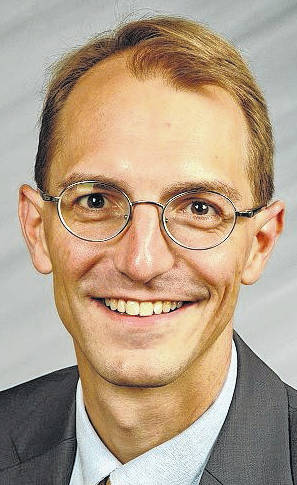
“We’re invisible. They’re treating us just like they treated my grandmother.”
— James Blaesing
“Widespread, public recognition and acceptance by the descendants, historians, and biographers that Mr. Blaesing is President Harding’s grandson is not enough for him.”
— Response by Harding relatives
When it comes to presidential affairs and claims of fathering children out of wedlock, historians typically think of Thomas Jefferson and Sally Hemings, or of scandal surrounding Grover Cleveland. But Marion’s Warren Harding was not immune from not just one, but multiple such scandals, both during his presidency and after his death.
When talking about Harding and misdeeds, the discussion typically turns to the Teapot Dome Scandal of 1921, or the Veteran’s Affairs scandal that came to light just before Harding’s death. But following his death in 1923, Harding’s reputation was buffeted by not one, but two tales of extra-marital affairs, and the illegitimate child whose heirs now seek to exhume the president’s remains in Marion County.
From roughly 1905 until his election to the White House in 1920, Harding had a long affair with Marion socialite Carrie Fulton Phillips. The Phillips and the Hardings were close friends, even touring Europe together. During Harding’s run for the U.S. Senate, and while the affair was still ongoing, Phillips threatened to expose the affair if Harding supported war with Germany, Mrs. Phillips being a lover of German culture.
When Harding accepted the Republican nomination for president in 1920, Phillips contacted party officials, told them that she had hundreds of lurid love letters from the candidate and threatened to take them to the press. In exchange for her silence, they offered to pay for a tour of Asia, and to give her an annual stipend for life. Mrs. Phillips died in 1960 and the affair might have remained a secret, but for the 1963 discovery of hundreds of those letters in the files of a Marion attorney. They remained sealed in the Library of Congress until 2014. Cleveland attorney James Robenalt has since published a book detailing the letters.
Because the Phillips affair was not then known, the 1927 claim by Nan Britton, also of Marion, and her book published the following year, were met with much skepticism. Not only did Britton claim to have had an affair with the president, in a closet at the White House no less, she said that the affair had resulted in the birth of her daughter. Britton died in 1991, still maintaining a claim that science could not yet prove. Britton’s daughter, Elizabeth Blaesing, died in 2005, and in 2014 DNA testing confirmed that Elizabeth was related to Harding’s nieces and nephews, leading most in the family to conclude that he must be her father.
Now, one of Elizabeth’s sons has filed suit asking that Harding’s remains be disinterred from the Harding Memorial in Marion so that direct testing can be done on them to remove any remaining doubt about his paternal heritage. Ohio law provides that a surviving spouse or any person over the age of 18 who is “of sound mind” may petition the probate court in the county in which the person is buried, asking that their remains be disinterred. Generally, this is to move the remains to another location, but it can also be for scientific testing, as is the case with Harding.
Notice must be given to other surviving relatives, and a hearing held to determine whether anyone objects. In some cases, remains are being moved to be buried with other relatives. Other times, modern projects require the relocation of cemeteries, as happened when the elevated portion of U.S. Route 23 was built next to the river, displacing the former St. Mary’s cemetery. In other cases, unmarked graves are discovered during excavation or construction, such as happened with an ODOT project in Delaware County last year.
Britton’s grandson and Harding’s relatives will have their day in court. A full century after Nan Britton and Warren Harding supposedly conducted their affair, Ohio law will determine whether the allegation of that relationship, seemingly proven by the 2015 DNA testing, will temporarily disturb Harding’s final resting place; this matter highlighting once again, the many unusual duties assigned to probate courts in Ohio.


